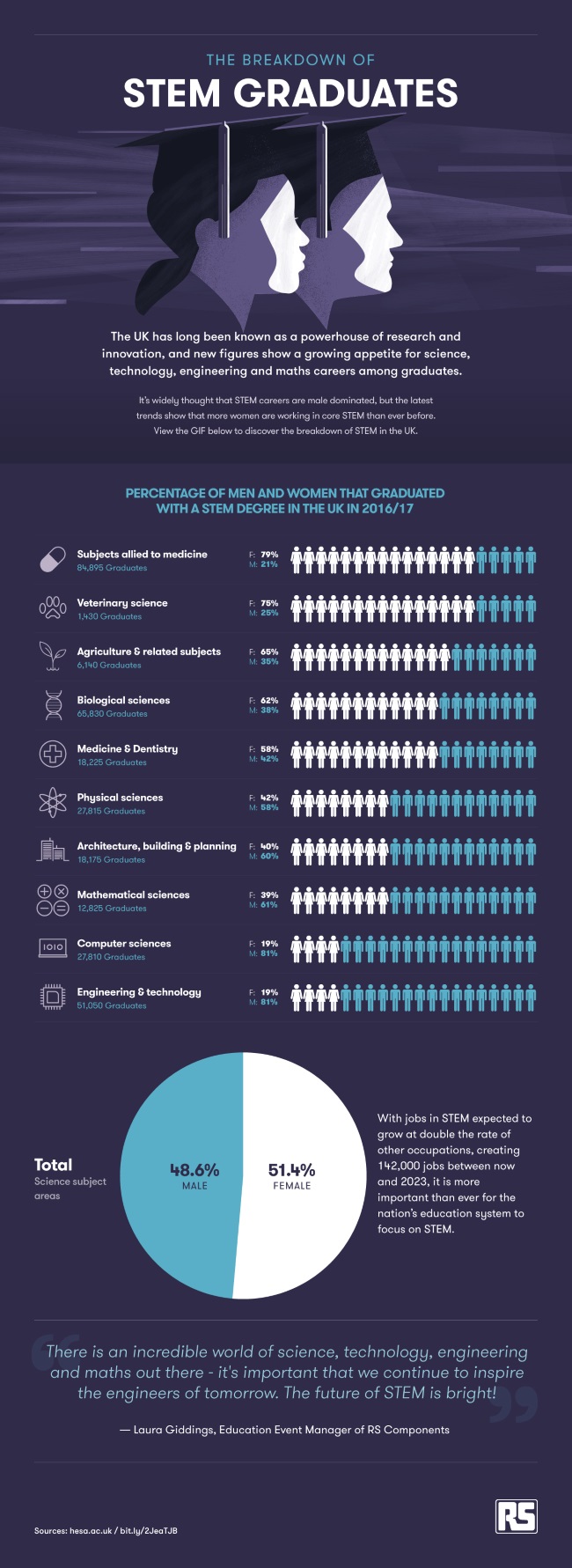Graduates in science, technology, engineering and mathematics (STEM) are critical to the UK economy, with research suggesting jobs are expected to grow at double the rate of other occupations, creating 142,000 jobs between now and 2023.
To meet the increased demand for roles, it’s vital that women and men continue to study STEM-related subjects at school, further education and higher education. This means it’s more important than ever for the nation’s education system to focus on STEM. It’s widely thought that these careers are male dominated, but the latest figures show that more women are working in STEM than ever before.
Women made up over half (51.4%) of graduates who gained a STEM degree in 2016/17. The most popular degree subject for women were subjects allied to medicine, making up 79% of graduates. The least popular degree subjects for women were both computer science and engineering, with just 19% of women making up each course. For men, the most popular degree subject was computer sciences, making up 81% of the total number of graduates in that subject area. The least popular degree subject for men were subjects allied to medicine, making up just 21% of all graduates.
Not only are careers in STEM fulfilling but reducing gender imbalance across industries can help address the gender pay gap.

Infographic provided by RS Components
